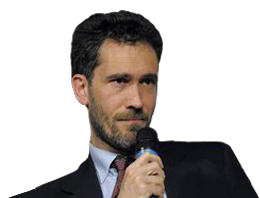English is by all means today’s lingua franca. But Germany hasn’t lost hope of increasing the use of the German language in Europe and worldwide. In recent years the federal government has raised the funding to German schools abroad and invested heavily together with private companies in German universities in Eastern Europe, in Asia and in South America. Three recent events of the past weeks have showed how much Germany is seeking to reinforce the international role of the German language.
Last week Angela Merkel became the first federal chancellor to visit the headquarters of the Goethe-Institut in Munich. She spoke about the attractiveness of the German language and criticized the excess of anglicisms. Moreover, just recently a new association, born in Köthen (Saxony-Anhalt) with the aim of defending the role of the German language, held one of its first public meetings. The Fruchtbringende Gesellschaft was founded following the model of the Fruitbearing Society of Weimar’s 17th century.
In a recent book (Hat Deutsch eine Zukunft? – Has German a Future?), Jutta Limbach, a former president of the Constitutional Court and of the Goethe-Institut, argues that German has no chance of winning against English or even Chinese for that matter. But she notes that the German language remains very important in the European Union: it is spoken by 32 percent of EU nationals. English, French and Spanish are spoken by 51 percent, 26 percent, and 15 percent of EU nationals respectively.
Ms Limbach argues that Germany’s economic powerhouse must become a vehicle to reinforce the role of the German language in Europe and worldwide. The Goethe-Institut just established a very peculiar advisory committee for an institution founded in 1925 to promote Germany’s culture and language abroad. The new body brings together some of the most well-known and powerful CEOs of German companies: among others, Josef Ackermann of Deutsche Bank, René Obermann of Deutsche Telekom and Martin Winterkorn of Volkswagen.
Their aim is to advise the Goethe-Institute on “social changes wordwide” given the fact these top-managers know “the working style of foreign companies”. The advisory committee shall also pinpoint “themes and fields at the juncture of culture and business”. Clearly Germany, the world’s largest exporting country, believes that a stronger international use and knowledge of the German language will help increase economic and trade links. By giving the Goethe-Institute such a high-profile advisory committee, the German establishment is entering uncharted territory, but it also showing how well public and private institutions can work together in this country.


